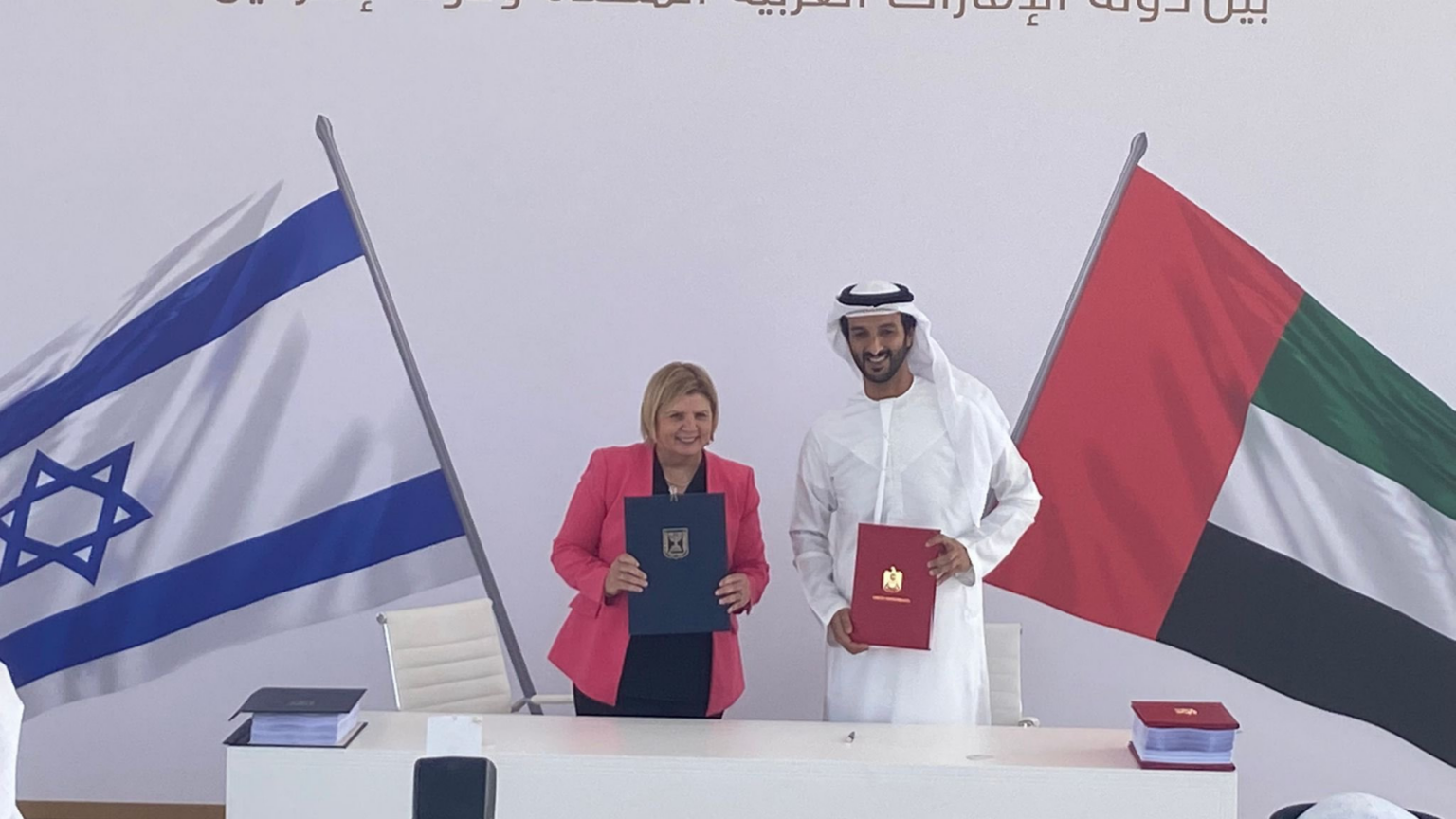Israel signed a major trade deal with UAE. The deal has signed to boost the trade between the two countries. The deal has some major negotiations on tax rates, intellectual property and imports.
The Comprehensive Economic Partnership Agreement was signed by the Israeli Minister of Economy and Industry Orna Barbivai and the UAE Minister of Economy Abdulla bin Touq al-Marri, on Tuesday.
The Israeli economy ministry, before the signing of the deal, said that the agreement would abolish tariffs on 96 percent of goods, including food, agricultural products, cosmetics, medical equipment and medicines.
The UAE- Israel business council said that the deal will encourage Israeli companies to establish offices in UAE, particularly in Dubai, and there will be a possibility that around one thousand companies will work in the UAE at end of the year and provide services to South Asia, Far East and the Middle East.
UAE authorities felt that the agreement would allow bilateral trade to reach more than 10$ billion per year in the upcoming 5 years.
Its Isreal first FTA in the region after signing the Abraham Accord with three major Arab nations, including Bahrain, Morocco and the United Arab Emirates, which was signed in August 2020.
The negotiations on FTA had been going on since November and the final negotiations had concluded in March after four rounds of talks when Israeli Prime Minister Naftali Bannett and UAE President and then Crown Prince Mohammed Bin Zayed Al Nahyan met in Egypt.
The trade between the two countries increased after the Abraham Accord. It reached 1.1$ billion within a year of the pact. Israel imported 771.5$ million costs of goods from the UAE in 2021, a vast leap from the 114.9$ million, which was recorded in 2020, data from Israel’s Central Bureau of Statistics noted.
It is UAE’s second Free trade agreement, a similar agreement UAE signed with India in February this year and which came into effect this month. The UAE-India’s Comprehensive Economic Partnership Agreement (CEPA) has aimed to increase trade between the two countries to 100$ billion from the current 60$ billion mark in the next five years.
Published By: Sandipan Dutta













